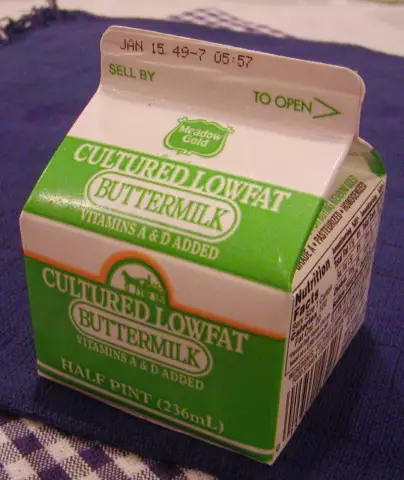- Author Rachel Wainwright [email protected].
- Public 2023-12-15 07:39.
- Last modified 2025-11-02 20:14.
Capers
Capers or kaportsy, capers - unblown flower buds of a caper (caper bush). In diameter, such a bud is about 1 cm. The caper grows in Southern Europe and North Africa. The original caper flavor and low calorie content made this plant a popular product for humans over 2000 years ago, and maybe even earlier. The Greeks began to use capers for food. Presumably, capers owe their name to the Greek name of the island of Cyprus (Cypros).
The ratio of BJU in the product

Source: depositphotos.com How to burn 23 kcal?
| Walking | 6 minutes |
| Jogging | 3 min. |
| Swimming | 2 minutes. |
| A bike | 3 min. |
| Aerobics | 5 minutes. |
| Household chores | 8 minutes |
Currently, capers are produced by the Mediterranean countries: Turkey, Greece, Spain, Cyprus and the islands belonging to Italy. It is in these places that caper bushes have been growing in the wild for many centuries. Other states are also trying to cultivate this plant. So, in Armenia and Georgia, a relative of capers is bred - jonjol or jonjoli.
Useful properties and calorie content of capers
The benefits of capers and their taste, original and refined, are appreciated by the traditional cuisine of the southern peoples, and this product that appeared in our country not too long ago began to quickly gain popularity. Capers have invaluable health benefits along with great taste. So, the main medicinal properties of capers are:
1. Pain reliever;
2. Antiseptic;
3. Astringent;
4. Anti-inflammatory;
5. Diuretic.
The benefits of capers are due to the rich composition of this product. Plant buds contain the following elements:
- Cellulose;
- Proteins;
- Fats.
Caper's seeds contain about 36% oil. There are a lot of vitamins in capers:
- Vitamin A;
- Vitamin B1;
- Vitamin B2;
- Vitamin B4;
- Vitamin B5;
- Vitamin B6;
- Vitamin C;
- Vitamin E;
- Vitamin K;
- Vitamin PP.
In addition, the benefits of capers are represented by a wide list of trace elements that make up their composition:
- Sodium;
- Potassium;
- Iron;
- Magnesium;
- Zinc;
- Copper;
- Selenium;
- Phosphorus;
- Manganese;
- Calcium.
Along with the high benefits of capers, their calorie content is very low, so they can be eaten without worrying about your figure. So, the calorie content of capers is only 23 kilocalories.
However, valuable metrics such as the low calorie content of capers and the health benefits are a little muted due to their too high sodium content. Excessive content of this trace element can adversely affect human health. Therefore, to neutralize this harm, capers are soaked in water before use. But the benefits of capers when soaked in olive oil will become very noticeable. The calorie content of capers canned in oil remains practically at the same level, changing insignificantly, and therefore, even in this case, they remain a dietary product. The nutritional value of canned capers is:
- Proteins - 2 - 3%;
- Fat - 0.9%;
- Carbohydrates - 1.7%.
Eating capers
Since antiquity, this plant has been used to heal wounds, get rid of toothache, heart and headache. For this, decoctions were prepared from all parts of the caper (flowers, fruits, roots, leaves).
The benefits of capers are powerful anti-inflammatory and analgesic effects that are used to fight various diseases. So, regular consumption of capers in food helps to cope with rheumatic pains. They are also recommended for other health problems:
1. Meteriosis;
2. Diseases of the thyroid gland;
3. Dentistry (diseases of teeth and gums);
4. Cardiovascular pathology.
Traditional medicine has been using capers for a long time and very actively. So, all parts of this plant are used by healers to combat such ailments as:
- Hypertension;
- Scabies;
- Jaundice;
- Neurosis;
- Brucellosis.
Even the ancient Arabs cured all kinds of allergies and rheumatism with the help of caper root. Unblown buds of capers are an excellent stimulant to stimulate appetite.
Nowadays, the pharmaceutical industry is also using the significant benefits of capers in the manufacture of medicines. So, capers are used for the production of drugs of the following pharmacological groups:
1. Sedative;
2. Diuretic;
3. Antiseptic;
4. Choleretic.
In cooking, unblown buds are used, as well as young shoots of this plant.
In fact, a caper, in our understanding, is an unblown caper flower pickled in vinegar, with the addition of salt, although ripe caper fruit can also be used for food, moreover, fresh. Just collecting the buds of the caper is not difficult, but the main thing is to process them correctly: pickle or pickle them.
Incomparable to nothing, the intense taste of caper is formed thanks to those mustard oils that come out of it during the marinating process in vinegar. On the surface of the capers, under the influence of the marinade, white spots form - this is nothing more than crystallized rutin (in fact, vitamin P). Ripe capers can also be eaten raw, but they are usually pickled.
Capers are an indispensable and important element of the cuisine of various countries and peoples. The bright, spicy-salty taste of capers decorates a variety of salads, pizza, sauces, meat and fish dishes. The low calorie content of capers and the taste are used in the manufacture of one of the most popular sauces - tartar sauce. The taste of capers goes well with olives.
In addition, in Greek cuisine, for example, not only flowers and fruits are used for food, but also caper leaves. They are also boiled or pickled and then included in salads and fish dishes. Dried caper leaves are used in the manufacture of hard cheeses, for fermentation, instead of rennet.

Contraindications and harm of capers
Due to the fact that capers contain a huge amount of substances that have a direct effect on the body, their use should not be excessive. This is especially due to the aforementioned high sodium content in them.
Harm from capers can be inflicted on a person with the following health problems:
- Hypotension (low blood pressure);
- Constipation;
- Erotism.
Absolute contraindications to the use of capers are pregnancy - due to the high sodium content, and individual intolerance to this product, in which case it causes allergies.
YouTube video related to the article:
Found a mistake in the text? Select it and press Ctrl + Enter.






